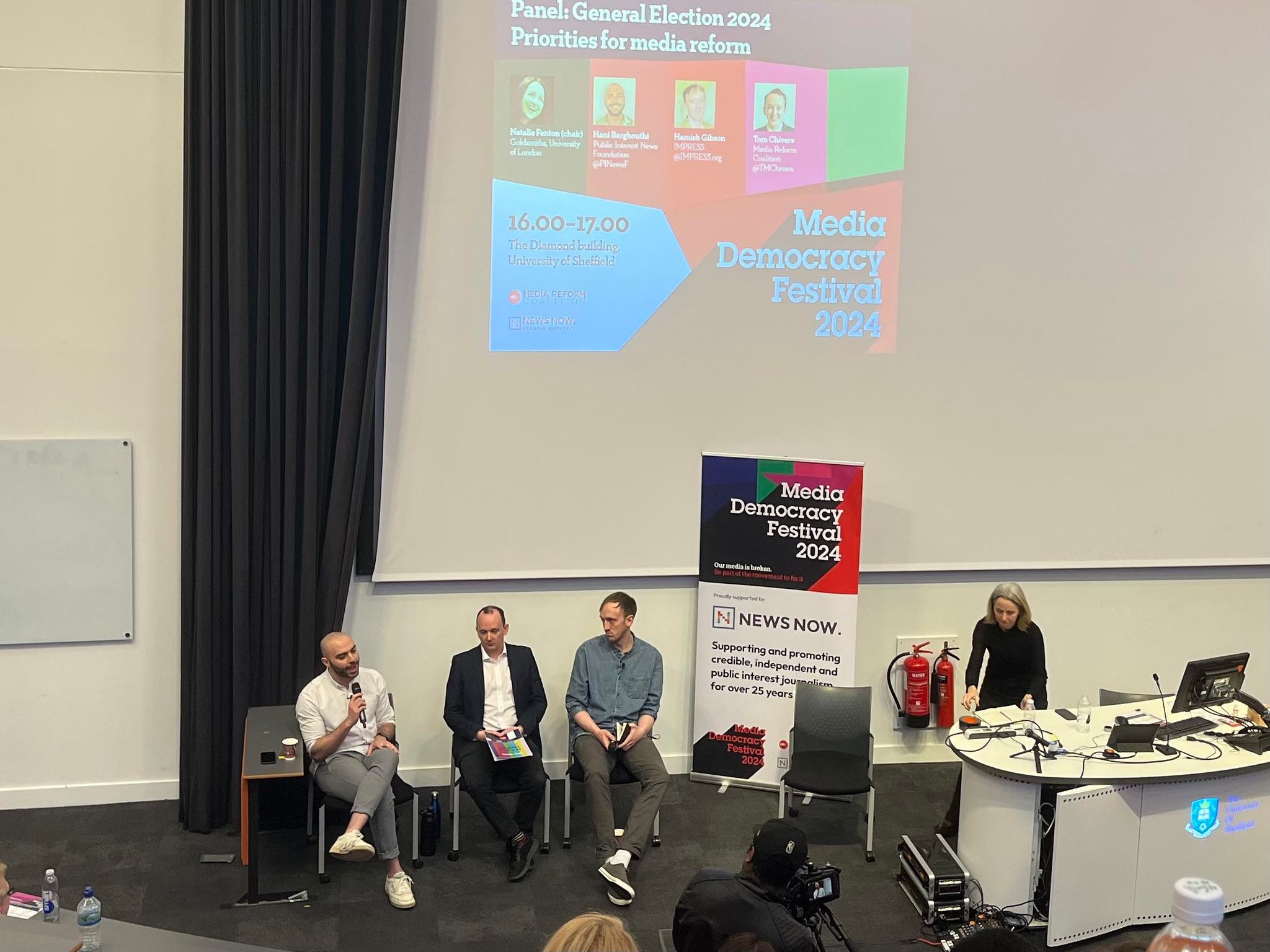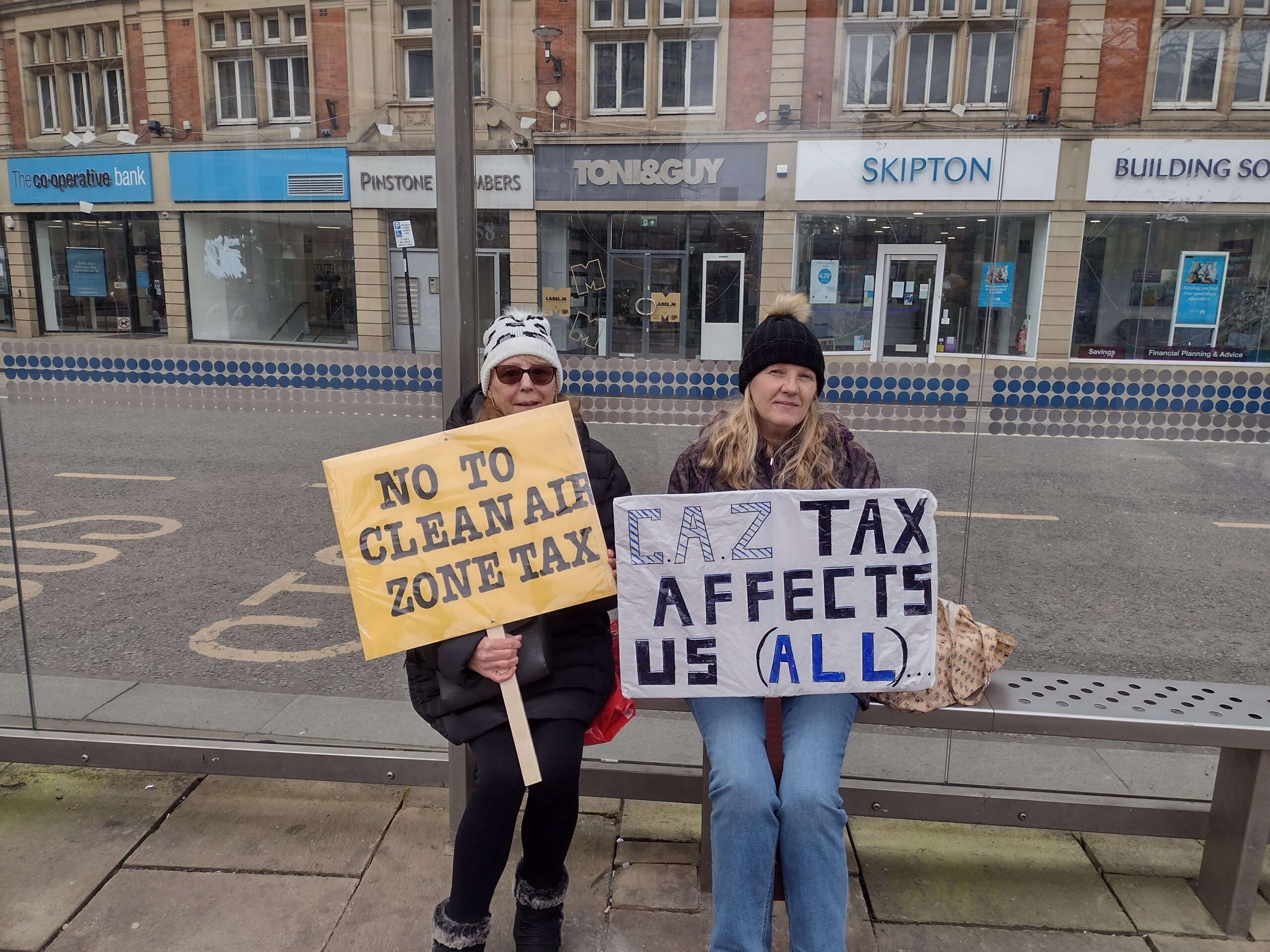A GB News reporter disrupted an annual Media Democracy Festival in Sheffield, two days before the organisation was criticised by Ofcom for its use of politicians as presenters.
The Ofcom code specifies politicians can’t be used as presenters unless it is, exceptionally, editorially justified.
But during a panel discussion on Saturday titled “How to solve a problem like GB News”, its reporter Charlie Peters claimed that “GB News was Britain’s number one news channel on at least one day last week”, and said there was a place for the channel in today’s media landscape.
After the event, GB News published an article saying Mr Peters went along to see “what the panelists and audience at this lefty convention might say about us.”
Controversial internet personality Oli London posted on X: “Media democracy? More like media dictatorship wanting to silence Britain’s most popular news channel that speaks up for the British people.”
The statement issued by Ofcom after its investigation into having three MPs as hosts said: “In our view, the use of politicians to present the news risks undermining the integrity and credibility of regulated broadcast news.”
After the event, the Media Reform Coalition said: “We were grateful that a GB News reporter attended the Festival and engaged constructively in the debate during the audience Q&A.
“This is in stark contrast to the mock outrage from his on-air colleagues at GB News, who have spent the last week attacking the Media Democracy Festival for daring to hold a free, public discussion about the channel.
“The panel’s discussions on GB News have proved to be especially timely, given that the media regulator Ofcom has today ruled that GB News programming breached broadcasting standards for the 12th time in two years.
“We have always rejected the cynical implication by GB News that organising a public debate on the media in this country is a threat to freedom of speech. On the contrary, these kinds of discussions should be welcomed and celebrated as essential to a healthy democracy.”
The festival’s initial advertisement for the talk on X (formerly Twitter) received backlash, with over 1,000 replies criticising what commenters saw as an unjustified attack on the channel.
The panel discussion on GB News focused on the regulation of the channel and the impact it has on the media landscape. During the talk, speaker Marcela Pizarro, former Al Jazeera producer, said that the “global rise of the far-right movement” was “relevant to this topic.”
Helen Belcher, of Trans Media Watch, said: “As a trans person I’ve not been brave enough to watch GB News.”
The panel also featured journalist and broadcaster Michael Crick, as well as Faisal Hanif from the Centre for Media Monitoring.
The Media Reform Coalition rejected the implication that the event was a threat to free speech, with Chair Tom Mills claiming the talk focused on obligations surrounding due impartiality.
The day also featured talks titled ‘The Media’s War on Gaza’, and ‘General Election 2024: Priorities for media reform’.
The closing keynote was delivered by Paul Fleming, General Secretary of Equity.



